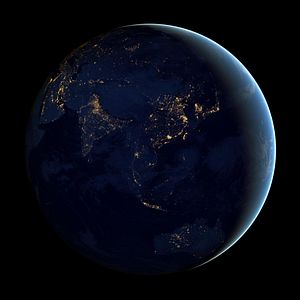In the first week of August, official estimates had Australia’s population reaching 25 million people. This milestone has induced much hand-wringing, apprehension, and frankly wild behavior within the country. Aside from genuine concerns about infrastructure deficits and attention to service delivery, there has been a neo-Nazi invited on a television program, neo-Malthusians being given high profile outlets for their flimsy crank, commentators unironically claiming the country is being colonized, and a senator advocating the reinstallation of racial discrimination as the “final solution” to the country’s immigration system. A sharp reduction in Australia’s immigration intake is now advocated by a former prime minister and the current home affairs minister (as well as by a number of more sober politicians and media commentators).
The anxieties of a such a peaceful, prosperous, and sparsely populated country must be confusing for anyone outside to comprehend. Yet despite Australia’s astonishing achievements — with the continued disenfranchisement of its indigenous population as its only genuine persistent problem — the country’s uncertainty about itself remains a permanent fixture of its national sentiment. Often termed “the lucky country,” this descriptor seems less an acknowledgement of its abundant resources than a recognition of how Australia seems to nervously stumble backward into success. (Donald Horne’s 1964 book The Lucky Country made a similar point, though the phrase got reappropriated as praise over the subsequent decades).
Australia’s fortuitous development has relied on highly advantageous global conditions. With its small population producing limited external capabilities, reliance on a “great and powerful friend” became the central pole of its strategic posture. In the United States there existed a global hegemon that took its role as a security guarantor seriously (albeit imperfectly), and projected values that Australia could feel comfortable with. These conditions now seem less secure. Uncertainty remains over exactly what U.S. President Donald Trump’s “America First” worldview fully entails, how long it may last, and what will be its ultimate consequences. A new hegemon in China is on the rise, with values distinct from Australia’s, and a power that it may not yet know how to wield responsibly.
These new global conditions are heightening Australia’s anxieties. Fretting over Australia’s population seems to be a harbinger of these concerns, a desire to shrink from the world to avoid oncoming difficulties. Yet, the 21st century’s shift to the Indo-Pacific as the world’s primary geopolitical theater prevents Australia from being able to hide, as it could in an Atlantic-centric world. A reduced, less engaged Australia will accentuate not only its physical insecurity, but its psychological insecurity as well, increasing the national sense of vulnerability. Finding a way to counter this timid impulse should become a strategic imperative.
As state power once again returns to being driven by population size, Australia will soon find the influence it has enjoyed to be diminished. This is inevitable, but it doesn’t have to be deeply consequential. Australia still maintains many great advantages to counterbalance this phenomenon; the country has just entered its 27th consecutive year of economic growth; it is competitive in services, burgeoning technologies, and high-value-added manufactured goods; is a major resource and agricultural power; has an educated and highly skilled workforce, reasonable diplomatic reach, a professional and technologically savvy defense force (albeit lacking in numbers); and is a lifestyle super-power. The country has the capacity and ability to attract many more people in order to further enhance these advantages, and to create new opportunities to negate current dependencies.
Maintaining this attractiveness — in all senses of the word — is central to whether Australia wishes to maintain its status as a middle power, or retrench into becoming a middling one. Remaining open and welcoming is a signal of intent that the country seeks deeper engagement with the world, and in uncertain times, wishes to bolster its influence, confident that its values are forces for security, stability, and human flourishing. It would express Australia’s desire to be a power that helps shape global norms, rather than becoming a timid follower, beholden to what other states allow.
Yet it remains a mystery where Australia will find the leadership it requires to create a more self-confident and expansive country. Hostile reactionary sentiment is not only present in the parties of the populist fringe, but has infected the parties of the governing conservative coalition as well. The Labor party is suffering the same fate as social-democratic parties worldwide; unable to find a narrative to simultaneously inspire both their traditional working class base and the progressive middle class. The Greens remain internally conflicted over immigration and lack foreign policy and security nous.
This opens up questions about whether the current lack of ambition for Australia is due to an ideological gap in the country’s party-political landscape, a consequence of a unique national insecure disposition, or a tip-toeing strategic calculation based on lack of confidence in the security guarantees of the United States? Or a combination of all three: an overall inability to see the country’s values, its openness, and its internal make-up as capability and security assets. Instead the country expels the constant hum of self-doubt and discomfort, and in doing so amplifies the dark emotions that threaten Australia’s primary strategic asset: the resilience of its domestic institutions.
































